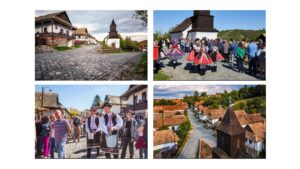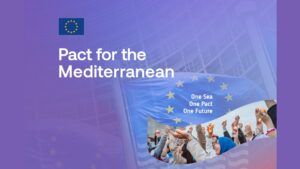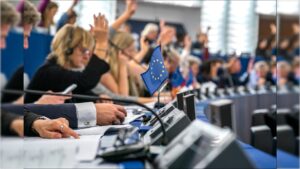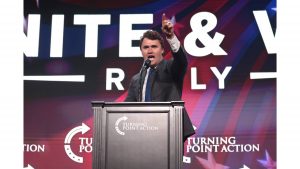Next year will not only constitute the largest election year in human history, but these changes will also have an effect on the European Union’s institutions and working methods, as well as the dynamics of policy making and policy shaping. What challenges will Europe face in 2024, and will EU elections accelerate or slow down integration efforts?
While many countries will hold national elections the same day, the 9th of June will also be the day for European elections for national delegates to seven European parliamentary groups from the entire political spectrum. While elections often lead to a shift in priorities and policies, it can also make decision-making more dynamic, with introducing new players. The most important question of all, who will be the next President of the European Commission? The European Council will need to nominate a candidate for a five-year term, which the Parliament can approve or veto. The personality of the President of the Commission will have a significant impact on how the EU is seen in the world and how it can (re)act to challenges in the neighborhood e.g. in Ukraine, the Western Balkans. It will also define what relationship it has with great powers such as the U.S., Russia and China.
In her first opening speech, von der Leyen laid emphasis on a rules-based order, fair trade, climate neutrality, supporting SMEs and the creation of a Defence Union, all while dealing with the consequences of Brexit, the pandemic and later the war in the Eastern Neighborhood. Many policies came to fruition, nevertheless the European project is never finished, but is an ever evolving process.
2024 will be a year of transition for the EU towards its green and digital goals, however the uncertainties of the war in Ukraine (as well as the Middle East) will continue to define the EU’s global posture. Will it continue to be a reactor or a proactive player to challenges? When it comes to further integration, significant steps will need to be taken to provide the Western Balkans with a long-term European perspective and make some countries join before 2030. This can provide new investment opportunities, further secure the EU’s external borders, including allowing Romania and Bulgaria to join the Schengen area. The internal and external security of the EU is incomplete without these steps and all Member States will need to commit to strengthening them.
The unstable global political landscape will necessitate that EU institutions and member states coordinate their efforts in order to provide stability on the continent, both socially and economically. As we look ahead to the next year, it is equally important to strategize for the next decade(s) and to define in what kind of Europe we want to live together, in peace, security and prosperity.
Image: eumatrix.eu






